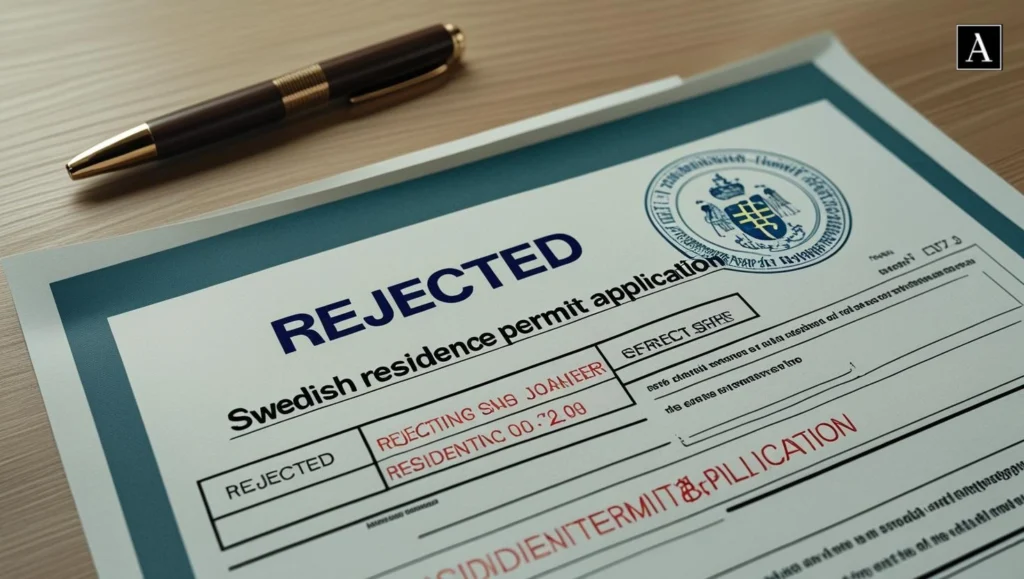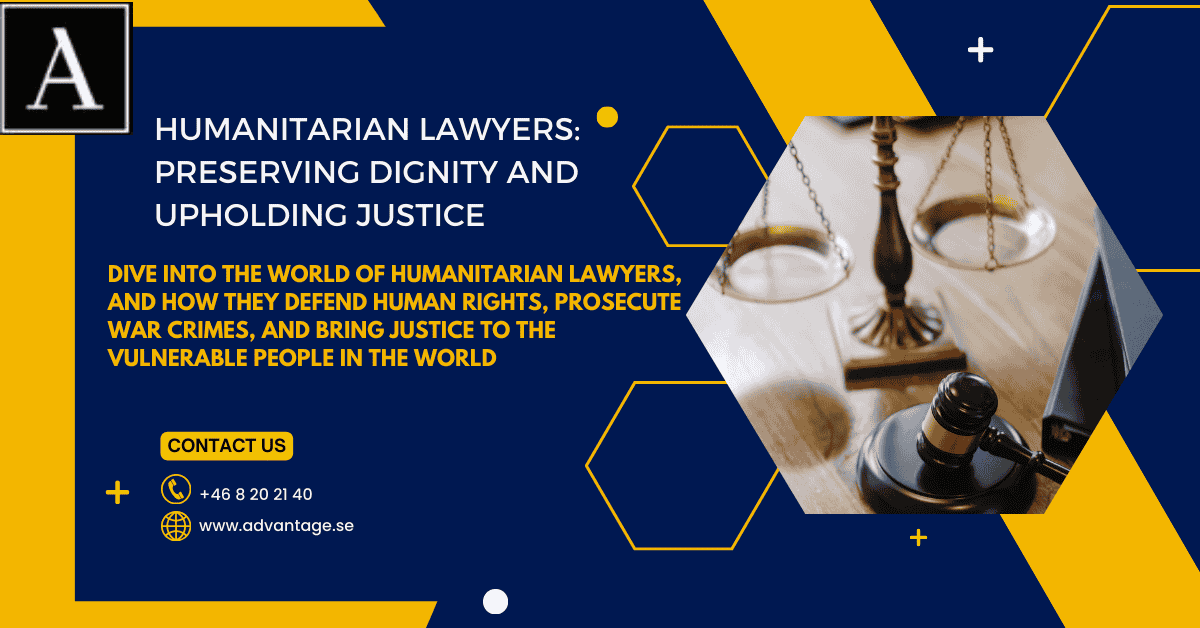Humanitarian Lawyers: Preserving Dignity and Upholding Justice
Dive into the world of humanitarian lawyers, and how they defend human rights, prosecute war crimes, and bring justice to the vulnerable people in the world.
Despite technological advancements, and our world going through constant upgrades, human rights violations and conflicts are still prevalent. This is where humanitarian lawyers emerge as beacons of positivity and hope.
Humanitarian lawyers are legal and certified professionals who dedicate their lives to safeguarding fundamental human rights.
Oftentimes, this happens in incredibly intense and challenging circumstances. Let’s explore in detail the crucial role of humanitarian lawyers in preserving human rights.


Who Are Humanitarian Lawyers?
Humanitarian lawyers are specialists in the unique intersection of humanitarian aid, international law, and human rights. Their work revolves around the provision of legal protection for different kinds of vulnerable populations. Typically, this includes asylum seekers, refugees, war victims, and all those suffering from systemic discrimination.
Quite often, humanitarian lawyers collaborate with different international organizations, government agencies and NGOs. The combination works well in addressing diverse legal challenges pertaining to displacement crises, post-disaster recovery efforts and conflict zones.
The Importance of Humanitarian Law
The need for humanitarian law has increased at a significant pace over the past decade.
More than 35 million refugees are displaced across the world. An even bigger number is facing persecution and tormentation at the hands of those in power. Humanitarian crises are only growing bigger and more traumatizing.
In times like these, we need expert humanitarian lawyers more than ever. They make sure to uphold international law principles including the Geneva Conventions. This provides a solid framework for increased protection and accountability.
Core Tasks and Responsibilities of Humanitarian Lawyers
Humanitarian lawyers face myriads of diverse challenges in their line of work. Considering that, their key responsibilities and tasks are quite vast as well.
Some of their core responsibilities and tasks include the following:
Advocating the Rights of Asylum Seekers and Refugees
Asylum seekers and refugees experience tons of difficulties. Humanitarian lawyers are lifesavers for such people.
They help secure legal status for both asylum seekers and refugees. In addition, they shepherd their clients through long and complicated immigration processes, making sure that their cases receive fair treatment, and their rights are preserved.
Addressing Diverse Atrocities and War Crimes
Conflicts are tough to navigate. Their aftermaths are often even tougher to manage.
Post-conflict, it is the humanitarian lawyers who help prosecute war crimes as well as different kinds of crimes against humanity.
With their incessant efforts, the humanitarian lawyers ensure the perpetrators take accountability of their actions, and that the victims receive their rightful reparations.
Providing Everyone the Access to Justice
Multiple vulnerable communities exist in various parts of the world. Unfortunately, many of them do not have access to important legal resources.
One of the core responsibilities of humanitarian lawyers is to ensure everyone has access to justice. Typically, they offer pro bono services, offering legal knowledge, education, as well as representation to all those in need.
Challenges Faced by Humanitarian Lawyers
A humanitarian lawyer’s path is laced with many challenges.
Very often, they have to work in high-risk environments such as unstable regions, politically disruptive areas, and conflict zones.
With their safety under constant threat, they go through intense emotional strain. Simultaneously, they often witness traumatizing human rights violations which further elevates their stress and pressure.
In addition, they constantly face a challenge of working with limited resources. With inadequate funding, it is indeed tough to offer meaningful and comprehensive support.
The situation worsens when political pressures from influential entities and/ or government bodies come into being. Additional roadblocks obstruct their path, keeping them from effectively fighting for the rights of the vulnerable and affected people.
Moreover, bureaucratic challenges including complicated immigration systems, slow and faulty legal processes, and unbearably long legal proceedings tend to obstruct and delay the humanitarian efforts.
While these challenges can be quite debilitating, humanitarian lawyers stay steadfast, and don’t go astray from their cause. Fueled by unwavering passion to avail justice, these lawyers exhibit unmatched commitment to human rights, and fight for the rights of all those whose voices often go unheard.
How Advantage Law Firm Encourages and Facilitates Humanitarian Efforts
At Advantage Law Firm, we are 100% dedicated to channelize our legal expertise and influence to support various kinds of humanitarian causes.
Be it advocacy, pro bono work, or partnerships with individuals and organizations that champion human rights, we strive to add meaningful contributions to the world of justice.
Conclusion- Get In Touch With Our Experts
Humanitarian lawyers are indeed working relentlessly to protect the rights and integrity of those suffering from discrimination, persecution, violence and displacement.
Their efforts make certain that marginalized communities, asylum seekers, refugees and other vulnerable populations across the globe get equal access to protection and justice.
If you are looking for legal expertise in that area, or are seeking collaborative opportunities on initiatives related to human rights, we are here to assist you. Together, let’s make a positive difference in the world.
Book a Consultation
-

 Labor Laws in Sweden
Labor Laws in Sweden -

 Skillnaden mellan jurist och advokat inom fastighetsrätt
Skillnaden mellan jurist och advokat inom fastighetsrätt -

 Avskedad Med Omedelbar Verkan
Avskedad Med Omedelbar Verkan -

 Acquisitions of companies
Acquisitions of companies -

 Exploring the Framework of Real Estate Law in Sweden
Exploring the Framework of Real Estate Law in Sweden -

 Understanding Working Hours, Overtime, and Rest Breaks in Sweden
Understanding Working Hours, Overtime, and Rest Breaks in Sweden -

 Let Us Understand Swedish Immigration Law from Application to Citizenship
Let Us Understand Swedish Immigration Law from Application to Citizenship -

 Labor Law in Sweden: Important Insights on Employee Rights, Benefits and Pay
Labor Law in Sweden: Important Insights on Employee Rights, Benefits and Pay -

 Navigating Swedish Law: How to Find the Right Attorney in Sweden
Navigating Swedish Law: How to Find the Right Attorney in Sweden -

 Legal Attorney Services
Legal Attorney Services -

 Labor Law in Stockholm: Your Guide to Employee Rights
Labor Law in Stockholm: Your Guide to Employee Rights -

 Real Estate Law That Protects Your Property, Profits, and Peace of Mind
Real Estate Law That Protects Your Property, Profits, and Peace of Mind -

 Resolving Business Disputes in Stockholm: Your Guide to Expert Legal Solutions
Resolving Business Disputes in Stockholm: Your Guide to Expert Legal Solutions -

 How to Avoid Common Pitfalls for Compliance and Corporate Law in Sweden?
How to Avoid Common Pitfalls for Compliance and Corporate Law in Sweden? -

 Real Estate Attorney in Sweden: Navigating Property Laws for Buyers and Sellers
Real Estate Attorney in Sweden: Navigating Property Laws for Buyers and Sellers -

 Welcome to Advantage Law Firm
Welcome to Advantage Law Firm -

 Why Get Expert Legal Support for International Employment Disputes?
Why Get Expert Legal Support for International Employment Disputes? -

 How to Appeal a Rejected Residence Permit in Sweden
How to Appeal a Rejected Residence Permit in Sweden -

 Advantage Affärsadvokatbyrå är specialist på entreprenadrätt
Advantage Affärsadvokatbyrå är specialist på entreprenadrätt -

 Legal Consultation
Legal Consultation

